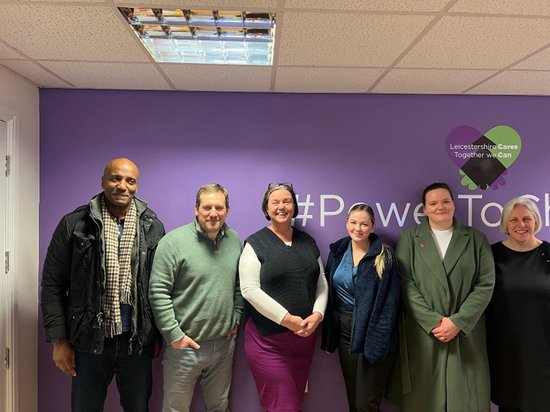Context
The Youth Justice Board is a non-departmental organization that holds responsibility for overseeing the youth justice system. The main aim of this organization is to monitor the operation of the youth justice system and ensure that both children who offend and victims of crime, receive the best outcomes.
In the Youth Justice Board Strategic Plan [1], it was highlighted that there was a need to strengthen the support provided to victims of crime, reduce racial disparity, and develop services to better meet the needs of children. The Youth Justice Board proposes to achieve this by using an evidence based, “Child First Approach”. This approach can be summarised as follows:
“A youth justice system that sees children as children first, treats them fairly and helps them to build on their strengths so they can make a constructive contribution to society. This will prevent offending and create safer communities with fewer victims.”
The Chid First Approach[2] is underpinned by the following tenets:
As Children: this requires that the best interest of the child is prioritised.
Building pro-social identity: this requires that children are supported to focus on the future whilst building their strengths.
Collaborating with children: this mandates that all work is delivered in collaboration with children and their carers.
Diverting from stigma: this tenet promotes pre-emptive diversion to reduce contact with the criminal justice system.
A report published by the government titled Tackling Violence Against Women and Girls[3], this report emphasises the importance of providing safety to women and girls. CSEW data reflected the following information:
· 1.8% of adults aged 16 to 74 (equivalent to 773,000 people) had been a victim of sexual assault in the last year
· 2.9% of those victims were women
· 132,000 victims of rape (including attempts) were women.
In line with recommendations made by Susan Hannock, the government has now decided to stop placing girls in young offender institutions. Data confirms that girls in custody are responsible for more than 50% of the self-harm incidents thus perpetuating further violence
The context above links directly to our work with young people in the following ways:
1. Child First Approach
In line with Leicestershire Care’s Power to Change model, we focus on supporting participants to become empowered citizens. We collaborate with participants to ensure that we help them identify their strengths whilst helping them visualize and take positive action steps towards a brighter future. We actively engage with stakeholders and the business community to source education, training, and employment opportunities as alternatives to engaging in negative or criminal behaviours.
2. Violence Against Women and Girls
Violence against women and girls is often perpetuated by males. Some of our male participants have been involved in such situations. As part of the service, we aim to provide coaching on personal boundaries. Participants are provided with techniques and guidance on how to manage emotions such as anger. A member of the Youth Justice team has also partnered with a member of the care experienced team to attend training to learn how to prevent violence against women and girls.
[1] Youth Justice Board Strategic Plan 2024-2027 https://assets.publishing.service.gov.uk/media/6603e2ecc34a860011be7607/2024_03_26_-_6.8802_YJB_Strategic_Plan_2024_FINAL_v07_WEB.pdf
[2] For further detail, see: Youth Justice Board (2022): ‘A guide to Child First’. Available at: https://yjresourcehub.uk/images/YJB/Child_First_Overview_and_Guide_April_2022_YJB.pdf
[3]https://assets.publishing.service.gov.uk/media/6194d05bd3bf7f054f43e011/Tackling_Violence_Against_Women_and_Girls_Strategy_-_July_2021.pdf
We achieved several successes this quarter as we supported participants in accessing education, employment, and training opportunities. In addition to this, we have been trying to create a youth justice film to help amplify the adverse childhood experiences which often leads to criminality. We contacted De Montfort University and they have confirmed that they now have team of students willing to collaborate with us to create a Youth Justice film. We anticipate that this collaboration will equip the students to implement their learnings and we can utilise it as a training tool to help create empathy amongst employers which we hope will lead to the creation of work opportunities.
This quarter, we also hosted a Design a Mug employability day. This event was designed to equip participants with the tools required to excel in an interview and to enable them disclose their convictions with transparency and integrity. A professional with lived experience of crime also shared his experiences which had an impact on both the participants and professionals. Another objective of this event was to provide participants with the confidence to network and speak with professionals. Our successes are as follows:
- 13 referrals received
- 16 referrals continued from previous quarters
- 11 YP attained or continued in education, employment, and training
- 1 Design a Mug Event delivered in collaboration with Nelsons, Stepnell, Everards, and Pedestrian
- 6 business members involved in various events
- 1 Podcast recorded in collaboration with a Community Navigator from the Phoenix Team.
If you are a business and would like to get involved in the work that we do by providing valuable work experience/work trials, please get in touch using the email address below.
Youth Justice Project Development Manager
Chikodi Lori
chikodi@leicestershirecares.co.uk
To read about our Power to Change approach, click on the link below:
For more information and insight into the VIP Project click the links below:
Youth Justice Design a Mug and Employability Day | Leicestershire Cares
YOUTH JUSTICE MOCK INTERVIEW SESSION | Leicestershire Cares
Man Cave Participants Dive into Finance and Business Strategy | Leicestershire Cares
Youth Justice Health and Wellbeing Day- Create Your Own Smoothie | Leicestershire Cares
Case Studies
VIP PROJECT CASE STUDY: S.B | Leicestershire Cares
VIP PROJECT CASE STUDY: R.M | Leicestershire Cares




